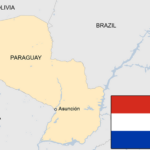Every time I’ve prepared to travel abroad, for work or for fun, something dire has happened somewhere: an epidemic somewhere, a civil war somewhere nearby, a terrorist act right where I’m going, the US invading some country far away in the name of its own national security, etc. Every time, at least one person will ask, “Are you worried? Should you still go?” And every time, I access the situation and, so far, I’ve still chosen to go. And it’s been fine. Lucky me.
We crossed the border on our motorcycles into Baja, California, Mexico on Sunday, March 8. The New York Times reported on that day that the USA had counted at least 539 cases across 34 states. But there were no travel restrictions. Not one person said, “Don’t go.” No flights were canceled. Cruise ships were still booking trips and launching voyages. It didn’t seem any different than other times (and if you are now smugly thinking I should have known, I challenge you to go read your own social media messages before March 8).
Things changed drastically in the two weeks we were in Baja. On March 20, I checked the US State Department social media account, as I did every day, and there it was: Travel Advisory Level 4: U.S. citizens who live in the United States should arrange for immediate return to the United States, unless they are prepared to remain abroad for an indefinite period.
We were already heading North and we could get back to the US-Mexico border in Tecate two days if we pushed it, but we decided to head back more slowly, taking one extra day, knowing that we could still get over the border to my country – the country where my husband has legal residency. And it worked out just fine for us.
But so many travelers had left weeks or months before on even longer trips, and were FAR from the border of their own countries when things changed so quickly. Many had sold their homes, or rented them, or given up their apartments:
- We have friends who had embarked on a Round the World cruise in January. No COVID-19 cases ever occurred on their ship, thank goodness – but the cruise ended months prematurely, in Australia, and they had to get back to San Francisco. It was not easy. Plus, they had rented out their home – they can’t kick their tenants out. They are lucky: they have a second, simple home up in the mountains (that didn’t burn down in a recent fire).
- “Itchy Boots”, a motorcycle traveler from the Netherlands who was riding from the Southern tip of South America to Alaska, got stuck in Peru. She started her trips months before COVID-19. Her situation turned dire suddenly, within 24 hours, with guesthouses being ordered to turn out all foreigners, and foreigners told they were not allowed on the roads – but her being in a town that was a two-day drive from the capital city (and airport). She made YouTube videos of what happened.
- Jeremy Kroeker and his riding partner, Elle, motorcycle travelers from Canada, are stuck Uruguay for the foreseeable future.
- As of March 20, there were US citizens stranded in Ecuador, including Eve Largent. “Yesterday, I heard that nobody’s really getting out of here.” Largent told KIRO-7 she and several other travelers from the US paid an extreme price for their only chance to leave by air: a charter flight, offering seats starting at $6,000 each.
- This March 20th story from Deseret News tells of various US citizens from Utah trying to get out of Ecuador – and how the US State Department and various embassies and consulates did not help. “They boarded a van at 4:30 am on Thursday with four other Americans, flouting emergency laws that made it illegal to travel in groups of more than 5. When they arrived, the border gates were closed, but the guards let them walk across to Mexico where they caught a taxi to the Tapachula airport.”
- Marcus, a retired banker from Cologne, Germany, has been traveling in South America for the last two and a half years. He was in Argentina in March 2020. “Within hours, foreigners became enemies here [in Cafayate, Argentina,] as a lot of people are afraid that we are bringing death,” reads his (@slowtravel4x4) Instagram post. “It started with…some vendors refusing to sell food and water to foreigners…the police started hunting foreigners to tell us we are not allowed to stay, but we haven’t been allowed to travel.” What ensued was 48 hours of confrontations with frightened locals and police, who insisted on escorting Marcus and his group of travelers outside city limits, but offering no long-term solution for where they should go. More about Marcus’ ordeal here, as well as profiles of other travelers living full time in RVs who are stranded in Europe.
- This March 27 story from El Universal talks about Mexicans stranded in different nations, many of whom who have taken to social media to denounce the indifference of the Mexican government to help them return. A group of 22 Mexicans shared a video through social networks noting they are estranged in Peru and the Mexican embassy in Peru has not helped – and even questioned their Mexican nationality.
I saw motorcycle travelers in Mexico posting to Facebook saying everything was fine in whatever city they were in, but then, in ONE day, highways and local roads were closed, curfews were instituted, consulates closed, the populace started not being very friendly, and guest houses and hotels closed to foreigners.
It’s not just foreign travelers: in the USA, all those people that live in their RVs year-round, that go from campground to campground, that have no homes otherwise, got screwed when city, state and national campgrounds closed because of COVID19 – hundreds, maybe thousands of people, stranded with few options (though I want to give a shoutout to KOA, whose campgrounds, as a tent camper, I loathe and avoid – but some KOAs, while shuttering cabins, yurts and tepees have kept campgrounds open for RVs).
We ourselves had a big problem in the USA, as we traveled over three days on our motorcycles from the Mexican border to our home in Oregon; hotels were still open, but all restaurants were closed, and the freezing rain and snow took it’s toll on my fingers and hands to the point that riding, at times, was unsafe. My travelogue about the trip talks about how we handled that (yes, someone ended up threatening to call the police).
What I’ve learned as I’ve read all these and other accounts, and what we experienced, is:
You have to stay up-to-date on what’s going on. If you hear of a political situation (strike, armed conflict, a dispute between world leaders), a natural disaster or a health situation that relates in any way to your own country, the country you are in or the country you might go to, stay up-to-date daily on developments via reliable news sources, NOT friends on Facebook. Read not only news sources from your own country about the country you are in, but also local news sources (Google Translate can help). In fact, check twice a day.
Just how suddenly things can change. You can be told by officials that there are no plans for a lockdown and, the next morning, be told by those same officials there is a lockdown. The lesson I’ve learned in all this: if you are fearing a lockdown, start planning for what you are going to do if there is a lockdown, no matter what others around you are saying.
Don’t count on your own government to help. This was a lesson I already knew because I work internationally. The US State Department will NOT help you leave a country except in the most dire of circumstances, and even then, only if you can be at a particular airport at the time designated – and they will NOT help you get to that airport. While I register any foreign travel with the US State Department, I also don’t ever assume consulate staff will be of any help at all. In fact, it was because of outcry from US Senators, who were hearing from their constituents abroad, that the US State Department did anything to help citizens stranded abroad.
Know local rules. If there is a curfew, adhere to that curfew, no matter what locals might be doing – but also be prepared to board a van at 4:30 am with a larger number of people than emergency laws allow in order to get to a border that you will then walk across.
Locals may turn on foreigners. This is something that happens frequently during local epidemics – I talk about it here. With COVID-19, it was often people from the USA who were bringing the illness to Mexico, and I’ve seen some really angry posts by Mexicans about this on various social media. One person said, “There is an undercurrent of feeling that this all coming from the US.” Even state-to-state travel can turn ugly: The governor of Nayarit in Mexico, inflamed local hostilities when he said in video published on Facebook that people from another Mexican state, Jalisco, had brought COVID-19 in his state and he asked people in his municipality not to interact nor serve them.
Build local relationships if you are going to be in a town for more than a couple of nights. Motorcycle travelers: go visit a local motorcycle store or shop. Just walk by, start a conversation, say hi. The people in that shop may end up saving your butt. I will reference Itchy Boots again: she got to Lima within hours of the government completely locking foreigners down because of a connection through a local motorcycle shop, who helped her find a driver and truck, and the paperwork the little town’s local police commandant gave her – you see her driver use this paperwork at one point in a military checkpoint, and it absolutely made a difference in getting her to Lima.
Cash is king. The moment you think things MIGHT change for you, however remote the chance feels, get to an ATM and get plenty of cash. You will need to pay guest houses, you may need to pay someone to trailer your motorcycle and YOU to another place, you may even need to pay bribes. Carry your cash hidden in a money belt or in something under your shirt, along with your passport, and have it with you at ALL times.
Can you stay where you are right now for 90 days? You need to ask yourself this question the moment you think things MIGHT change. In fact, I’ve read some advice that says you need to be prepared to stay for six months if you decide not to do everything possible to get back to your home country. Remember: most hotels will close, at least to foreigners, most campground will close, and an invitation to stay with someone “as long as you need” could be rescinded as fears rise.
Is there a better place to hunker down? Small towns might feel safer, but they are also farther from key government officials, airports, hospitals, medicine, and other foreigners who might be able to help you, and Internet access may not be great – and Internet access is EVERYTHING when you are abroad. If you are going to stay abroad, consider your options for the best place to stay for six months in one spot.
Think about storing your motorcycle and flying back to your home country. You might be able to store your motorcycle at a shipping company, at a motorcycle shop or a motorcycle mechanic’s shop. You will need to be prepared to pay storage fees. You also need to check about how to extend your carnet (temporary import document).
You may be better off abroad. This article from Foreign Policy explains why.
I have no idea what to advise if you’ve sold your house or rented it out, or if you gave up your apartment back home. I hope you have family you can move in with indefinitely – after your 14-day quarantine in a local hotel in your own community. If you have ideas, please leave them in the comments.
There are already many people who say, “You shouldn’t travel internationally,” who have said it long before COVID-19. Some say it because they believe it’s dangerous – they think crime in any country other than their own. Some say it because they are racists about people in other countries or about people from elsewhere visiting their country. Some say it because of the negative effects fossil fuels have on climate change. Some say it because international travelers have harmed natural resources. Now all of those folks will have another reason to add to list. And I’m sorry about that, because I believe passionately in the importance and benefits of travel – for both travelers and those that host them.












Leave a Reply